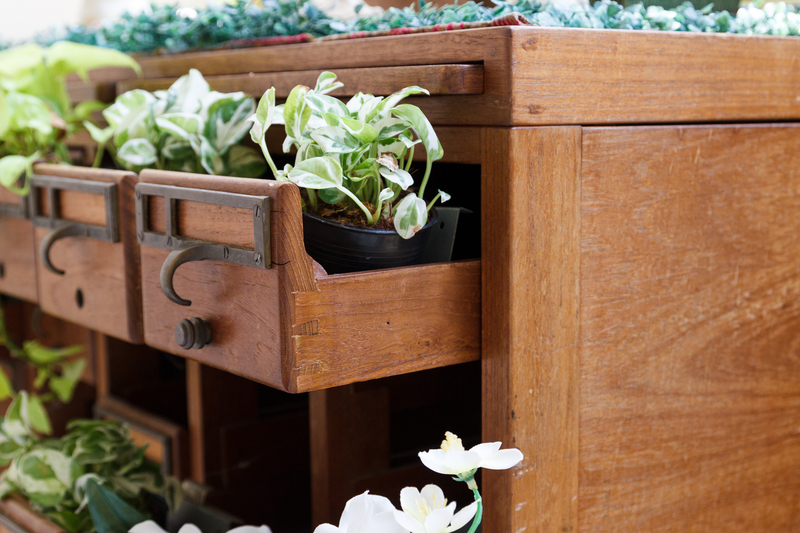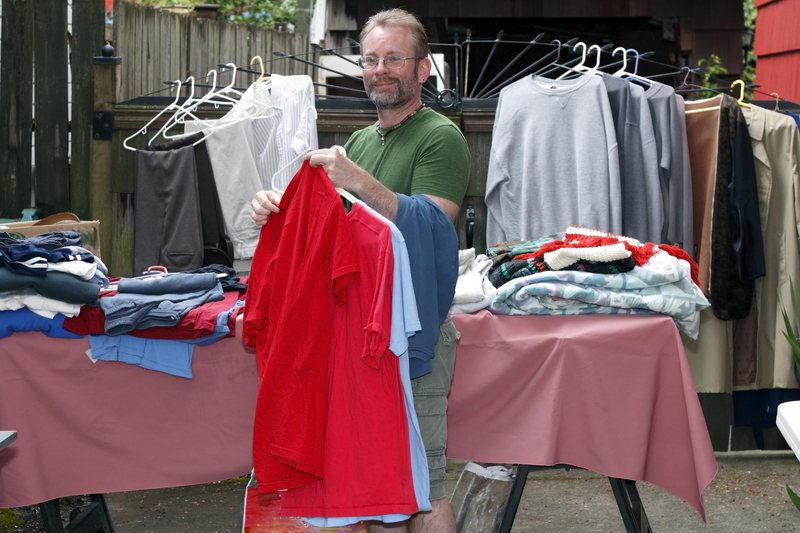Making Recycling an Integral Part of Childhood Learning
In today's rapidly evolving world, environmental awareness is more important than ever. Teaching children about sustainability and recycling from an early age not only nurtures responsible global citizens but also instills lifelong habits that benefit both society and the planet. This article delves into the significance of making recycling a fundamental element of childhood education. We explore practical strategies, engaging activities, and the long-term impacts of integrating recycling into young learners' daily experiences.

Why Integrate Recycling into Childhood Learning Curriculums?
The necessity for early education on environmental responsibility is growing. By embedding the principles of recycling and waste management into the learning process, children develop a holistic understanding of their impact on the environment. Here are a few points highlighting the value of making recycling education an essential part of the school curriculum:
- Builds Environmental Awareness: Early exposure to recycling concepts allows children to understand the repercussions of waste and the importance of conservation.
- Encourages Responsible Behavior: Kids who learn about recycling are more likely to adopt habits that reduce pollution and conserve resources.
- Develops Problem-Solving Skills: Recycling projects foster creativity as children figure out new ways to reuse and repurpose items.
- Prepares Future Leaders: Children taught the value of recycling often become advocates for environmental causes as they grow older.
The Long-Term Benefits
Studies have shown that children who are introduced to sustainable habits like recycling at an early age carry these practices into adulthood. By integrating eco-friendly principles into childhood learning, educators and parents can help shape a generation that is not just aware of environmental issues but actively works towards positive change.
Strategies for Making Recycling a Core Part of Learning
Wondering how to embed recycling into your teaching toolkit? Here are several tested and innovative methods for integrating recycling in childhood education:
1. Classroom Recycling Stations
A simple yet highly effective practice is to set up clearly labeled recycling bins for plastics, paper, and organics within each classroom. Teachers should regularly engage students in sorting waste, discussing the reasons behind each bin and the destination of the sorted materials. This tangible approach helps kids relate theory to everyday action.
2. Creative Arts & Crafts Using Recyclables
Art projects are a wonderful way to highlight the potential of recycled materials. Implement workshops where children create sculptures, collages, or decorative items using old newspapers, bottles, cardboard, and more. This not only sparks their creativity but also reinforces the concept of reusing instead of discarding.
3. Storytelling and Thematic Lessons
Introduce storybooks, videos, and themed lessons centered around environmental protection and recycling. Many engaging children's titles address the journey of recyclables or narrate stories from the perspective of objects that go to recycling facilities.
4. Hands-On Science Projects
From building compost bins to organizing waste audits, hands-on science projects allow students to see the impact of recycling first-hand. These activities can be tailored to different age groups and can involve experiments such as observing decomposition or tracking the journey of recycled materials.
5. Organizing School Recycling Drives
Encouraging students to bring in recyclable materials from home and participate in community recycling events fosters teamwork and a sense of achievement. Schools can motivate children by rewarding efforts and highlighting the cumulative impact made through their contributions.
6. Partnering With Local Environmental Organizations
Schools can collaborate with local recycling centers and green businesses to organize workshops and field trips. These experiences grant children valuable inside looks at recycling processes and can broaden their environmental perspectives.
The Impact of Teachers and Parents in Promoting Recycling
Both parents and educators serve as role models, significantly influencing children's habits. Here are ways adults can enhance the efforts of making recycling part of everyday childhood learning:
- Lead by Example: Demonstrate correct recycling behavior at home and in the classroom. Children are more likely to mimic positive actions they observe in adults.
- Incorporate Recycling Language: Use terms like "reuse," "reduce," and "recycle" frequently in daily conversations to make these concepts second nature to children.
- Create Fun Challenges: Launch "zero waste" weeks, recycling competitions, or eco-friendly scavenger hunts to keep recycling exciting and engaging.
- Celebrate Achievements: Recognize and reward positive contributions and milestones, fostering a sense of pride and responsibility in young learners.
Building a Recycling Culture at Home
Parents can encourage their children to participate in household recycling chores, such as sorting waste or creating compost. Additionally, learning can be extended through fun activities like DIY crafts with recyclable materials or visiting recycling centers as a family outing.
Embedding Recycling in the Broader School Curriculum
Making recycling an integral part of education doesn't stop at environmental science. Here's how it can be woven into different subjects:
- Science: Study the impact of waste on ecosystems, explore biodegradability, or create compost as part of biology lessons.
- Math: Calculate how much waste a single school or household generates and determine the positive impact of recycling efforts.
- Art: Host recycled art contests or construct public installations using repurposed materials.
- Language Arts: Write essays, poems, or plays about recycling, or review books focused on environmental themes.
- Social Studies: Analyze global recycling initiatives and compare waste management practices across cultures.
Leveraging Technology to Teach Kids About Recycling
Children are increasingly tech-savvy, and digital resources can make recycling lessons more interactive and memorable. Consider the following digital strategies:
- Educational Apps and Games: There are numerous apps and online games designed to teach children about recycling in fun, challenging ways.
- Virtual Field Trips: Some recycling plants offer virtual tours, giving kids a behind-the-scenes look at what happens after items are sorted and collected.
- Animated Videos and Tutorials: Short, engaging videos explaining recycling processes are widely available and captivate young audiences, making complex information digestible.
- Online Communities: Access to children's forums or school platforms where classes can share their recycling projects and learn from peers globally.
Addressing Challenges in Recycling Education
Despite its importance, integrating recycling into childhood learning may face certain obstacles:
- Lack of Resources: Not all schools have access to proper recycling bins or materials. Solutions include seeking donations or grants from local organizations or involving the parent-teacher association.
- Insufficient Training: Teachers may lack exposure to environmental education methodologies. Professional development workshops or online courses can bridge this gap.
- Limited Family Involvement: Encourage parents to participate through school communications, home-based projects, and community cleanup events.
- Complexity of Recycling Guidelines: Rules about recyclables can vary. Frequent reminders and educational signage both at home and school can clarify doubts and ensure compliance.
Evaluating the Impact of Recycling Programs in Schools
To ensure methods for instilling recycling habits in children are effective, schools and parents can track progress and outcomes using the following techniques:
- Waste Audits: Before and after program implementation, measure how much waste is diverted from landfills.
- Student Surveys: Assess students' attitudes, knowledge, and behaviors related to recycling through regular feedback.
- Project Portfolios: Compile students' recycling projects and creative endeavors for review and celebration.
- Community Awareness: Monitor increased family participation and broader community engagement in sustainability practices.
Long-Lasting Influence
Schools that champion comprehensive recycling education often notice a rippling effect--not just within the student body, but throughout local neighborhoods and even among staff and families. Students often become environmental ambassadors, inspiring relatives and friends to adopt more sustainable habits.
Case Studies: Schools Making a Difference Through Recycling Education
Across the globe, there are numerous shining examples of schools that have successfully made recycling a cornerstone of early education:
- Eco-Friendly Academies: Some schools have achieved "zero waste" status by systematically integrating recycling and composting into daily routines, demonstrating what's possible when a community is united by a cause.
- Student-Led Initiatives: From bottle cap murals to peer-education programs, children themselves often lead the way in championing recycling projects within their schools.
- Collaborative Partnerships: By working with local businesses, councils, and environmental groups, schools have launched innovative programs that simultaneously benefit students, communities, and the environment.

Actionable Tips for Embedding Recycling into Your Child's Education
If you're a caregiver or educator looking to make recycling a key aspect of learning, consider these actionable steps:
- Set clear and achievable recycling goals for your classroom or household and celebrate progress.
- Engage children in discussions about why recycling matters--not just how to do it.
- Use visual cues like posters, labels, and reminders to reinforce recycling routines.
- Incorporate recycling activities into everyday lessons, from math and science to art and literature.
- Maintain open communication between schools and families to collaborate on environmental initiatives.
Towards a Greener Tomorrow: The Transformative Role of Recycling Education
Making recycling an integral part of childhood learning is a vital step in raising generations of environmentally conscious, action-oriented citizens. By weaving sustainable principles into the fabric of daily education, we empower children to play an active role in protecting our planet--now and in the future.
As teachers, parents, and community members, let's continue to innovate, collaborate, and inspire eco-friendly habits in our children. The seeds of responsibility we plant today will flourish, ensuring a cleaner, healthier world for generations to come.